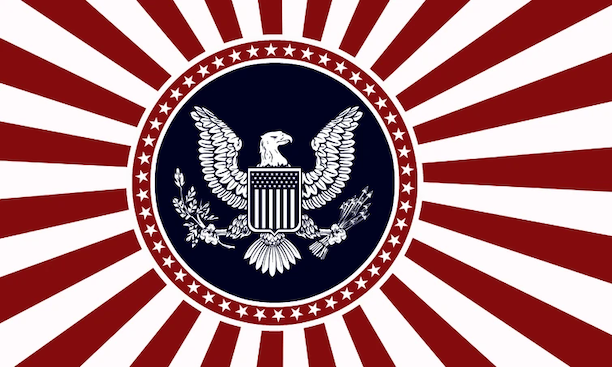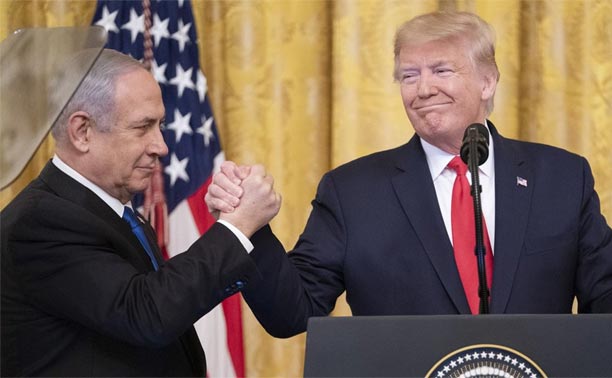Pages: << 1 ... 16 17 18 19 20 21 22 23 24 25 26 ... 1279 >>
American Christian Churches Have Become Synagogues of Satan
by Brian Shilhavy
The words of Jesus Christ, as recorded in the last book of the Bible in the prophetic book of Revelation, state:I know your afflictions and your poverty—yet you are rich! I know the slander of those who say they are Jews and are not, but are a synagogue of Satan. (Revelation 2:9)
These words were addressed to the congregation of believers in Jesus Christ in the city of Smyrna, in present-day Turkey. They were being slandered by the Satanic Jews (Zionists today).
He made it very clear that these so-called “Jews” who claimed to believe in Him were not his followers, but belonged to the “Synagogue of Satan.”The Rise of Crypto-Zionism: A Chronology from Nixon to Trump's Second Term (2025)
Cathy Smith
Zionist propaganda and proponents of pro-Zionist ideology have intervened in global politics, which is referred to as Crypto-Zionism. Proponents of this movement have employed technology, media, and international alliances to achieve their goals from the Nixon presidential administration up to Trump's presidential administration in 2025. This essay outlines the chronology of Crypto-Zionism, identifying its significant milestones, players, and media events. Through this timeline built from a multitude of sources: news articles, academic publications, and investigative journalism, I argue that from unreconciled claims, the Israeli mark of Crypto-Zionism poses a dire menace to democracy and freedom.
Circus Barkers Blow Ballyhoo and Balloons At a Politics of Hate Speech: While the Israel and United States Governments Rain Down Blood-Soaking Bombs For Payments to Hell: But No Holy Marys Allowed at University Campuses by Trump’s Christian Cabinet
By Mark Aurelius
Has there ever been a word more super-charged, politicized, and over-bloated with frothing and rabid connotation, in our modernity, than terms as hate, hatred, hate speech or acts of hate?
Perhaps there are some, but one’s noggin can be scratched in long, doting befuddlement to come up with much in the way of substantial competition.
How have these supposedly human and prosaic words been bequeathed with such power as to conjure up magic spells of absolutism, infallible judgmentalism, and darkly divine pronouncements of accusation—pointing fingers towards designated hate groups and individuals in the courts of public opinion?
The Destructive Path of Trumpism: A Corporate Oligarchy and Crypto-Zionism Leading America Toward Ruin
Cathy Smith
With every passing moment of the United States settling into the post honeymoon phase of Donald Trump’s second presidential stint, one thing is becoming exceedingly evident; his guidance has been steering the nation towards the brink of socio-economic catastrophe. A colluding alliance between Trump and a set of powerful elites, like Peter Thiel and Elon Musk, has deeply fractured American democracy. The increase in corporate influence on politics has resulted in the most powerful and authoritarian figures claiming dominance, resulting in dire cripple in economic and political stature of America.
This amalgamation of forces ranging from Trump’s administration and the proponent of the authoritarian new world puts the existence of a United America in question. A combination of corporate control and crypto Zionist global capitalism undermines democracy and pushes the US deeper into Israel-centric geopolitics. The term Zionism as a strategic ally of Israel describes a blend of financial motives within the global cryptocurrency market supported by the autocratic political Zionism. The partnering of these forces with Trump and some of the influential corporations like Palantir Technologies, Narus, Nice, Boeing and Amdocs have not only guided America into a deep geopolitical conflict but shattered the essence of American democracy as well.
The Demonization of Shakespeare Is Part of the Demonization of the West
Paul Craig Roberts interviewed On Target with Larry Sparano
In the United States my generation began reading Shakespeare’s plays in high school. In universities you encountered Shakespeare in the core curriculum. When core curriculums were abolished, English majors got further into Shakespeare and studied his sonnets. It was the work that was admired and studied, not who Shakespeare might really have been. His use of language was studied and what his plays taught about the human condition. Today if he is studied at all, it is likely to be his alleged homophobia, the extent of his alleged anti-semitism, his alleged racism. In the US some universities exclude him from the curriculum. As for England, what produced the interview below was the report that the English were decolonizing their great poet and playwright.
The USA Mirrors the Lies and Crimes of Israel Where Black is White and Wrong is Right
By Mark Aurelius
Part 4 of Trump’s Cabinet Selections Shows Us He is a Zionist-Firster and His Subservience to Zionist Censorship
Where do we start when there is so much to unpack?
Where is there clarity when all truth is set back?
How to explain against a propaganda onslaught?
Turning this tide is a heavy-lift comeback.
Yes, the art of deceit is ‘their’ critical skill.
So let’s hope readers who can swallow the pill.
We are not just talking about taking either the red pill versus the or blue pill. Nor simply to realize both pills have good insights but equally side effects of intellectual distortion.
Voter Discontent: The Failure of the Oligarchic Duopoly System
Fred Gransville

An ongoing existential political crisis is gripping the United States, demanding immediate attention. Americans are not just frustrated, disillusioned, and enraged with the dominant political parties' inability to deliver. The grievances are numerous; they cut across economic, social, and cultural spheres, yet all converge to one ultimate cause: alienation on the part of the political elite from the common plight of the American people.
In pulling the Gaza documentary, the BBC is failing Palestinian children
Anyone who is offended by a child sharing their lived experiences of survival can choose not to watch the BBC Gaza documentary. But do not deny innocent children – who have experienced unimaginable grief and loss – the right to tell their stories, writes Sylvia Monkhouse
Gaza: How to Survive a Warzone is a harrowing account of life in Gaza as seen through the eyes of Palestinian children. It provides a rare window into young lives devastated by months of relentless bombings, displacements, and unspeakable horrors.
Japanese and Nazi War Crimes, Human Experimentation, and the Emergence of CIA-Fomented Ultra-Right-Nationalism
Chris Spencer

Some atrocities of World War II are the most recalled overall. Still, the nature of its atrocities is in the details—details that have been officially covered up, repressed, or just plain denied. Nazi Germany's and Imperial Japan's human experimentation were no deviations but the natural consequence of ideologies that dehumanized millions in their quest for scientific and military supremacy. These X-ray, microwave, drug, and psychological "Mind Kontrol" manipulation experiments were not conducted on the battlefields and concentration camps of Europe and Asia only. They continued into the post-war period, where they were continued under the aegis of the United States government via OSS/CIA Operation Paperclip and its less famous (MKUltra, MKNaomi, MKArtichoke) siblings. MK is Germanic for Mind Kontrol, a tenet of the Far Right.
Baron Otto Von Bolschwing, SS Veteran of Eichmann’s "Jewish Affairs"
By Katherine Smith, PhD

Eichmann The Long-hidden report: CIA created ‘safe haven’ for Nazis in the US obtained by the New York Times November 13, 2010, may be the most concrete account yet of the role that prominent members of Germany's Nazi party played in the early, formative years of the CIA, following World War II. The report alleges the CIA created a "safe haven" for Nazis believed to be of use to the US' Cold War efforts. [1]









